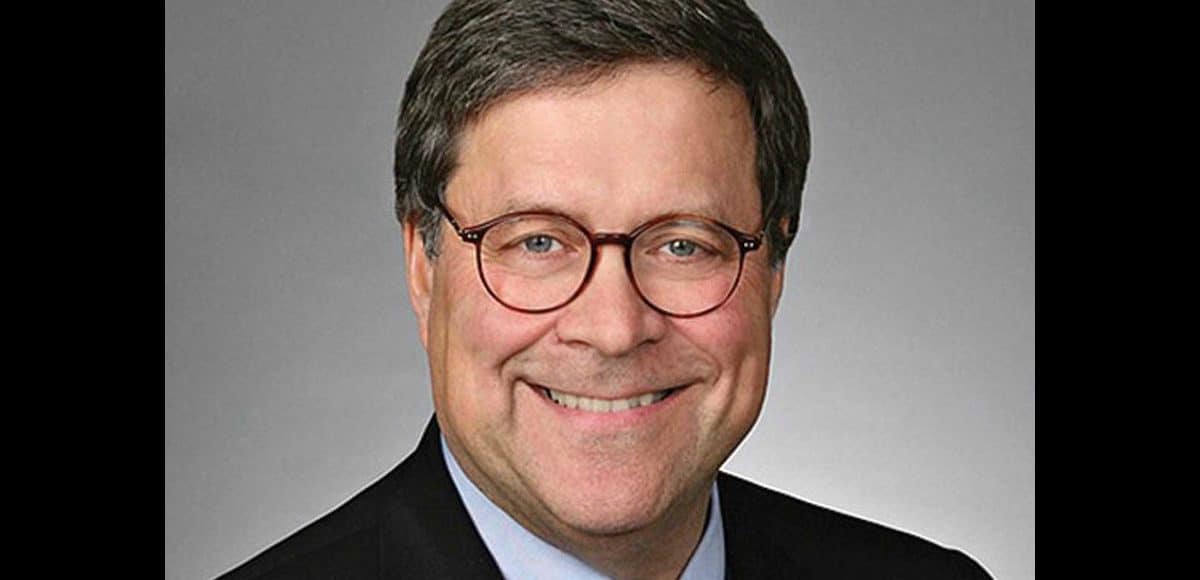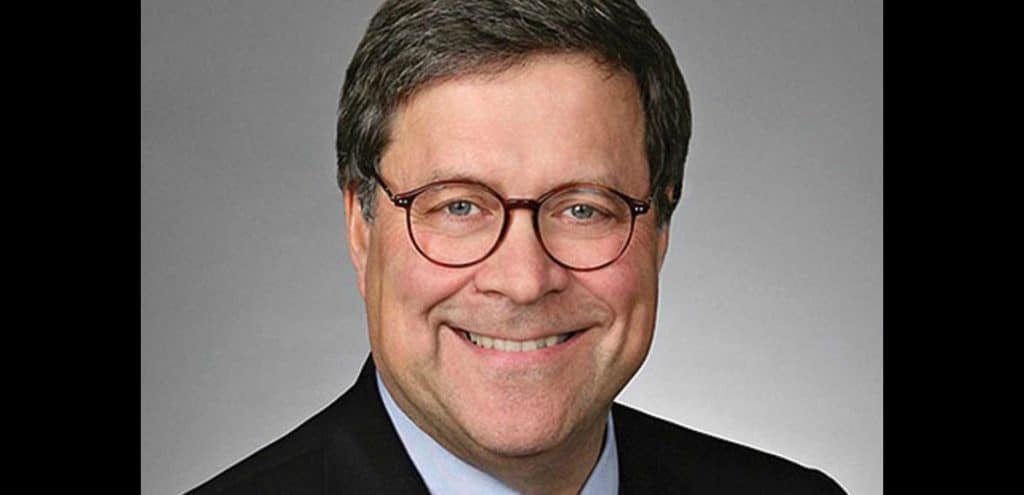
Trump, McConnell Continue to Overhaul the U.S. Courts of Appeals

The Senate Judiciary Committee convened at 10:00 AM EST Thursday to consider the nomination of William Barr for U.S. Attorney General, 44 judicial nominees and Donald W. Washington for Director of the U.S. Marshals Service.
UPDATE: The Senate Judiciary Committee voted 12 to 10 to advance the nomination of William “Bill” Barr for U.S. Attorney General to the floor of the U.S. Senate. The nomination will be reported favorably, and the full chamber is expected to confirm the nomination. The other nominees were also reported favorably on party line votes.
On December 7, 2018, President Donald J. Trump announced that he would nominate Mr. Barr to replace Jeff Sessions. The president’s nominee for top cop served as the 77th U.S. Attorney General from 1991 to 1993, under George H.W. Bush.
As People’s Pundit Daily (PPD) previously reported, he was supported by both Republicans and Democrats on the Senate Judiciary Committee. The committee, which is now led by Chairman Lindsey Graham, R-S.C., approved his previous nomination unanimously by a vote of 14 to 0.
He was confirmed by voice vote by the full U.S. Senate just 36 days after the nomination was announced, and was sworn in as Attorney General on November 26, 1991.
But now that he has been nominated by President Trump, Democrats on the committee and in the U.S. Senate at-large are largely opposing his nomination.
That includes Senator Sherrod Brown, R-Oh., who is expected to announce whether he intends to run for President of the United States in 2020.
“No one who has already tried to influence the Mueller investigation can be impartial – and the United States needs an impartial Attorney General,” Senator Brown tweeted. “The Senate Judiciary Committee must oppose William Barr’s nomination today.”
There are 13 appellate courts that sit below the U.S. Supreme Court, the U.S. Courts of Appeals. The nation’s second-highest court will hear controversial cases on immigration, abortion, religious freedom, and other issues that will have a significant impact on public policy and the president’s legacy.
The 94 federal judicial districts are organized into 12 regional circuits, each of which has a court of appeals. The 13th is the Court of Appeals for the Federal Circuit, which has nationwide jurisdiction to hear appeals in specialized cases.
Worth noting, 6 of the 40 judicial nominees being considered are for circuit judgeships. That includes Bridget S. Bade for the Ninth Circuit, Paul B. Matey for the Third Circuit, Eric D. Miller for the Ninth Circuit, Eric E. Murphy for the Sixth Circuit, Chad A. Readler for the Sixth Circuit, and Allison Jones Rushing for the Fourth Circuit.
The remaining 34 nominees under consideration are for one of the 94 federal judicial districts.
As PPD has also reported, President Trump and Senate Majority Leader Mitch McConnell, R-Kty., have been reshaping these federal courts.
On December 14, 2017, President Trump and Leader McConnell set a record for the most federal appeals judges confirmed during the first year of a presidency. The U.S. Senate confirmed the 12th nominee that day, breaking the previous record held jointly by Presidents Richard M. Nixon and John F. Kennedy.
In August 2018, the U.S. Senate confirmed the nominations of Julius Ness Richardson (81 – 8) and A. Marvin Quattlebaum Jr. (62 – 28), both for the U.S. Court of Appeals for the Fourth Circuit.
With those two confirmations, the president and Republican-controlled upper chamber had pushed through 26 federal appeals court judge confirmations.
It was two more than the previous year’s record and the highest number ever for a second-year presidency.
There are 179 judgeships for the U.S. Courts of Appeals. Meaning, those 26 appointments had already accounted for roughly 15%.
Only 11 vacancies remain to be filled on the U.S. Courts of Appeals. If President Trump’s nominees are confirmed, his administration could have reshaped as much as 21% of the nation’s second highest court.
Bridget S. Bade, to be United States Circuit Judge for the Ninth Circuit
Paul B. Matey, to be United States Circuit Judge for the Third Circuit
Eric D. Miller, to be United States Circuit Judge for the Ninth Circuit
Eric E. Murphy, to be United States Circuit Judge for the Sixth Circuit
Chad A. Readler, to be United States Circuit Judge for the Sixth Circuit
Allison Jones Rushing, to be United States Circuit Judge for the Fourth Circuit
Rossie David Alston, Jr., to be United States District Judge for the Eastern District of Virginia
Roy Kalman Altman, to be United States District Judge for the Southern District of Florida
Raul M. Arias-Marxuach, to be United States District Judge for the District of Puerto Rico
Thomas P. Barber, to be United States District Judge for the Middle District of Florida
J. Campbell Barker, to be United States District Judge for the Eastern District of Texas
Pamela A. Barker, to be United States District Judge for the Northern District of Ohio
Kenneth D. Bell, to be United States District Judge for the Western District of North Carolina
Wendy Williams Berger, to be United States District Judge for the Middle District of Florida
Jean-Paul Boulee, to be United States District Judge for the Northern District of Georgia
Holly A. Brady, to be United States District Judge for the Northern District of Indiana
Andrew Lynn Brasher, to be United States District Judge for the Middle District of Alabama
Brian C. Buescher, to be United States District Judge for the District of Nebraska
James David Cain, Jr., to be United States District Judge for the Western District of Louisiana
Stephen R. Clark, Sr., to be United States District Judge for the Eastern District of Missouri
Clifton L. Corker, to be United States District Judge for the Eastern District of Tennessee
Daniel Desmond Domenico, to be United States District Judge for the District of Colorado
Karin J. Immergut, to be United States District Judge for the District of Oregon
Matthew J. Kacsmaryk, to be United States District Judge for the Northern District of Texas
Damon Ray Leichty, to be United States District Judge for the Northern District of Indiana
Corey Landon Maze, to be United States District Judge for the Northern District of Alabama
David Steven Morales, to be United States District Judge for the Southern District of Texas
Sarah Daggett Morrison, to be United States District Judge for the Southern District of Ohio
Carl J. Nichols, to be United States District Judge for the District of Columbia
Howard C. Nielson, Jr., to be United States District Judge for the District of Utah
J. Nicholas Ranjan, to be United States District Judge for the Western District of Pennsylvania
Rodolfo Armando Ruiz II, to be United States District Judge for the Southern District of Florida
Rodney Smith, to be United States District Judge for the Southern District of Florida
Michael J. Truncale, to be United States District Judge for the Eastern District of Texas
Wendy Vitter, to be United States District Judge for the Eastern District of Louisiana
T. Kent Wetherell II, to be United States District Judge for the Northern District of Florida
Allen Cothrel Winsor, to be United States District Judge for the Northern District of Florida
Joshua Wolson, to be United States District Judge for the Eastern District of Pennsylvania
Patrick R. Wyrick, to be United States District Judge for the Western District of Oklahoma
John Milton Younge, to be United States District Judge for the Eastern District of Pennsylvania
M. Miller Baker, to be a Judge of the United States Court of International Trade
Richard A. Hertling, to be a Judge of the United States Court of Federal Claims
Ryan T. Holte, to be a Judge of the United States Court of Federal Claims
Timothy M. Reif, to be a Judge of the United States Court of International Trade







Sam / February 7, 2019
Introducing some balance into the courts by putting in Constitutionalists who support fealty to the written law and the language of the Constitution is an essential element of Trump’s achievements. The goal should be to fill every single vacancy by the end of his term so that win or lose, there has been some balance in the courts. The Supreme Court is important but hears relatively few cases. The Courts of Appeal are most important in straightening out the political circuit courts.
/
Phil McCraken / February 7, 2019
Hear ye, hear ye, the courts are being returned to the founders original intent. God Bless America
/
Seamusmeboy / February 7, 2019
Sherrod Brown is a Democrat.
/
Craig / February 7, 2019
Democrats want slaves still, and again. That is the driver of everything they say and do. Senator Brown reveals his affiliation with them in his tweet.
/